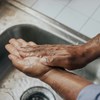joined

Alexandros Rigos
I am a researcher at the Institute for Futures Studies in Stockholm and also affiliated with the Department of Economics at Lund University. My research interests are in economic theory and experimenta I hold a BSc in Physics (University of Athens) and an MSc in Economics (University of Birmingham). I obtained my PhD in Economics from the University of Leicester in 2016, after which I spent four years at Lund University as a postdoc. In 2020, I joined IFFS, where I work on the project , together with Erik Mohlin. You can find more information about me and my research at my website .

Erik Mohlin
I am an associate professor (Swedish: docent) at the Department of Economics at Lund University as well as a researcher at the Institute for Futures Studies in Stockholm. My research is focused on game
Implementing the Water Framework Directive and Tackling Diffuse Pollution from Agriculture: Lessons from England and Scotland
in: Water 12: 244 AbstractTackling diffuse pollution from agriculture is a key challenge for governments seeking to implement the European Union’s Water Framework Directive (WFD). In the research liter
Just allocation of Covid-19 vaccines
BMJ Global Health 6: e004812. 2021 ABSTRACT Authorized COVID-19 vaccines must be distributed fairly. Several proposals have emerged offering guidelines for how to do this. However, insofar as the aim is A total of 182 countries have joined the facility so far, which has secured about US$2 billion for its advance market commitment (AMC). The AMC will allow 92 low-income and middle-income countries to obtain vaccine doses as they are approved or authorised. Currently, COVAX is set up so that in a first phase poor countries can vaccinate 3% of their populations, while rich countries can vaccinate up to 50%. Though the facility hopes to allow all members to vaccinate at least 20% of their populations by the end of 2021.Other proposals by theprioritising healthcare workers, the elderly and, those with comorbidities that put them at greater risk of severe illness if infected with COVID-19, people from certain high-risk sociodemographic groups and some teachers.
#MeToo, Social Norms, and Sanctions
in: The Journal of Political Philosophy, Volume 28:3, s. 273-295 (2020) In October 2017, following the Harvey Weinstein scandal, US actress Alyssa Milano called upon victims of sexual harassment to uni

Did the COVID-19 pandemic change our social norms?
As you might remember, a lot of our social behaviors changed during the COVID-19 pandemic, and how we perceived the behaviors of others. What was once deemed acceptable behavior became scrutinized, wi









